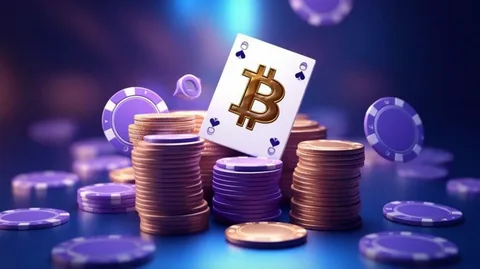In recent years, the UK has taken bold steps to address the growing concerns over gambling addiction and its societal implications. One of the most significant measures in this fight has been the implementation of the UK ban on credit card casinos uk. This move has sparked widespread debate, raising questions about its effectiveness, the potential for change in the gambling industry, and its broader social and economic consequences. In this article, we will delve into the reasons behind the ban, its immediate effects, and the long-term impacts on both players and the gambling industry.
What Led to the UK Ban on Credit Card Casinos?
The UK has long been at the forefront of regulating gambling, but the rise of online casinos and gambling platforms created a new set of challenges. The use of credit cards for online gambling was seen as a significant contributor to the growing number of individuals struggling with gambling addiction. Many players, especially those with easy access to credit, were increasingly spending beyond their means, leading to financial ruin and personal hardship.
In January 2020, the UK Gambling Commission introduced the ban on using credit cards for gambling activities, particularly within online casinos. The primary objective was to curb the risk of gamblers accumulating debt by borrowing money to fund their betting habits. According to the Gambling Commission, credit cards were seen as an easy way for vulnerable individuals to engage in risky gambling behavior without fully understanding or considering the financial consequences.
Key Provisions of the Ban
The UK ban on credit card casinos restricts the use of credit cards as a payment method on all licensed gambling sites. This includes both online casinos and sports betting platforms. Key provisions of the ban include:
- Credit Card Use Restricted: Players can no longer use their credit cards to fund gambling accounts or place bets. Debit cards, e-wallets, and other payment methods are still allowed.
- Scope of the Ban: The ban applies to all forms of online gambling, including slot games, table games, poker, and sports betting.
- Exemptions: The ban does not apply to in-person betting or retail casinos, where credit cards can still be used in some circumstances.
The Impact of the UK Ban on Credit Card Casinos
Protecting Vulnerable Gamblers
One of the most important outcomes of the UK ban on credit card casinos has been the protection it offers to vulnerable gamblers. By limiting the ability to gamble on borrowed money, the UK Gambling Commission aims to reduce the instances of problem gambling. Studies have shown that individuals who use credit cards to fund gambling are more likely to experience financial distress, which can exacerbate mental health issues, relationships problems, and even homelessness.
For many players, the removal of credit cards from the gambling process has forced them to confront the realities of their financial situation, encouraging more responsible gambling. It is believed that the ban has helped reduce the impulse to gamble using funds that individuals may not have, contributing to a safer gambling environment.
Impact on the Gambling Industry
For the gambling industry, the UK ban on credit card casinos presented both challenges and opportunities. Many online casinos and betting platforms saw a drop in revenue as credit card users were forced to reconsider their gambling habits. However, operators have adapted by promoting alternative payment methods such as debit cards, prepaid cards, and cryptocurrency. These payment systems offer a more controlled way for players to fund their accounts without the risk of overspending.
Some critics of the ban argue that it may drive players to seek out unlicensed gambling sites, where credit cards could still be used. This raises concerns about the potential growth of the black market for online gambling, which could lead to even more risks for consumers, such as fraud and lack of consumer protection.
Changes in Gambling Habits and Player Behavior
The UK ban on credit card casinos has also brought about significant changes in the gambling habits of many UK players. Without access to credit cards, players are more likely to stick to spending money they already have, leading to a shift toward more responsible gambling.
While some argue that this could reduce the overall number of gamblers or the amounts wagered, others suggest that it will foster a healthier gambling culture. Players now have to make more conscious decisions about how much money they are willing to risk, which could encourage a more sustainable approach to online betting.
Long-Term Effects of the Ban
The long-term impact of the UK ban on credit card casinos is still being measured. Some studies suggest that it has already contributed to a reduction in gambling-related harm, with fewer individuals accumulating credit card debt due to gambling. However, it is important to note that the ban alone is unlikely to solve the broader issue of problem gambling.
Experts argue that a more comprehensive approach, including better education on responsible gambling and improved support for those struggling with addiction, is necessary to address the root causes of the problem. While the ban on credit cards is a step in the right direction, it may need to be complemented by other measures to create a truly safe and responsible gambling environment.
Conclusion
The UK ban on credit card casinos represents a crucial step in protecting vulnerable gamblers and promoting responsible gambling practices. By restricting the use of credit cards for online betting, the UK Gambling Commission has addressed a key issue in the fight against gambling addiction. While the ban has undoubtedly had a significant impact on the gambling industry and player behavior, its long-term effects are still unfolding. For now, it remains an important part of the broader conversation about how to create a safer, more sustainable gambling environment for all players.


